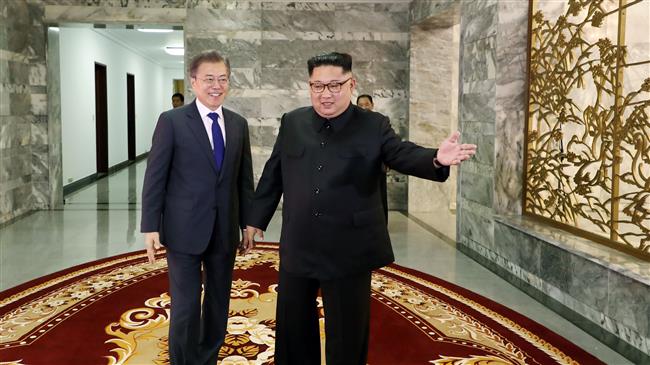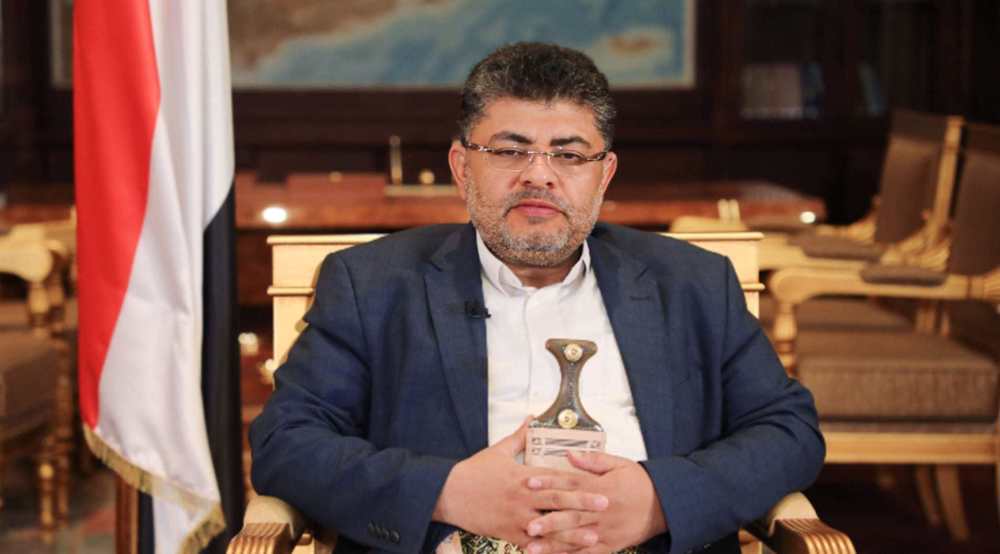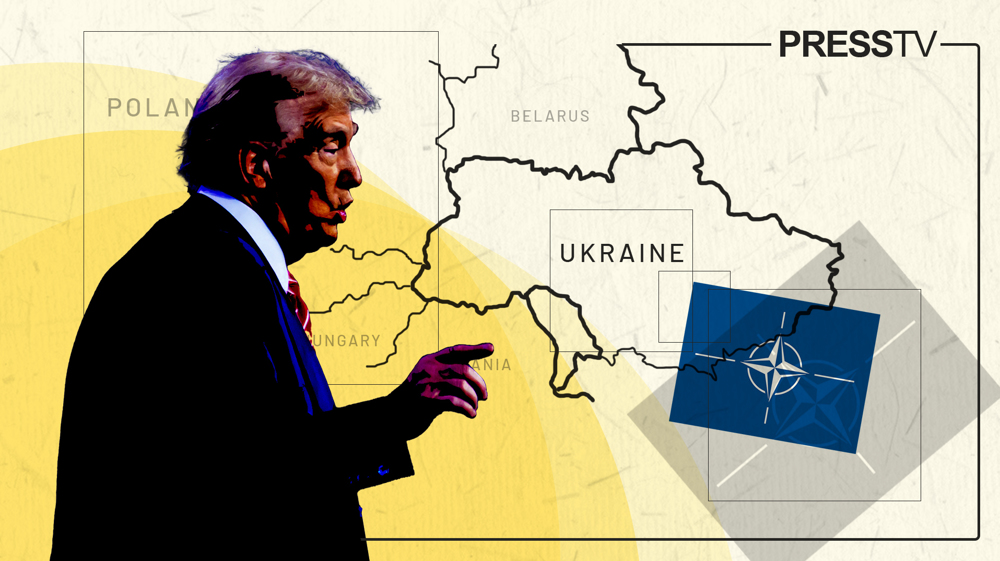North Korean paper censures US for hindering inter-Korean relations
North Korea's state media has lashed out at the United States for hampering progress in inter-Korean relations by imposing sanctions on Pyongyang.
The Rodong Sinmun, the official newspaper of the Worker's Party of Korea, on Tuesday said any attempt to block the hard-won small road between the two countries would end up in more inconveniences for Washington.
"There is nothing bad for the US if the tangled inter-Korean ties get straightened up... Trying to block the hard-won small road between the two Koreas would end up causing more inconveniences for the US to move around," the newspaper said in a commentary. "Have inter-Korean relations undermined US interests? Have inter-Korean relations ever caused a crack in the alliance between South Korea and the US?"
The paper also called on Seoul not to get influenced by Washington in enforcing the agreements the two Koreas reached in their summits this year. It said Seoul should not be influenced by outside forces in improving ties between the two Koreas.
The criticism came a day before a South Korean presidential envoy is to visit Pyongyang as part of efforts to arrange the date for a summit between President Moon Jae-in and North Korean leader Kim Jong-un.
The inter-Korean summit is expected to discuss follow-up measures agreed in their previous summits.
The two leaders first met at a historic summit at the border village of Panmunjom in the Demilitarized Zone back in April. The two leaders, after their April summit, agreed to work toward the complete denuclearization of the Korean Peninsula, halt hostile acts, and foster cross-border exchanges.
Stalled nuclear talks between Washington and Pyongyang have apparently been putting a brake on South Korea's move to deepen ties with the North.
Citing procedural problems, the US-led United Nations Command recently disapproved a visit by South Koreans to conduct a survey on a railway in the North. Opening a joint liaison office that the two agreed on in April to launch in the North's border town of Kaesong has also been in limbo.
Critics speculate the delay in projects might have been associated with Washington's discomfort with a faster pace of progress in inter-Korean relations than nuclear talks.
Kim Jong-un met with President Donald Trump of the United States in Singapore in June. The two sides agreed to the denuclearization of the Korean Peninsula. While the summit was seen as a test for diplomacy that could end the long-running nuclear standoff, foreign policy experts say the stakes are high if it does not result in a nuclear agreement.
Trump recently cancelled a planned trip by Secretary of State Mike Pompeo to North Korea, citing unsatisfactory progress on denuclearization.
The North Korean leader has already told Trump that denuclearization depends on ceasing antagonism between the two countries, while the United States says tough sanctions will remain in place against Pyongyang until its complete denuclearization.
Trump has partly blamed China for the lack of progress with North Korea and suggested that talks with Pyongyang could be on hold until after Washington resolved its bitter trade dispute with Beijing. The Chinese government has expressed "serious concern" about the matter.
Experts say dismantling Pyongyang's nuclear weapons program and verifying it would be a large and complex task.
North Korea has said its nuclear arsenal is a deterrent against potential aggression by the United States.
Israel preparing to stay in southern Lebanon after ceasefire: Report
Israeli pressure on Hamas ‘hardly helped’; swap deal necessary: Ex-Mossad chief
Far-right Israeli minister Ben-Gvir again storms al-Aqsa Mosque
Iran: Israel’s attack on journalists’ vehicle in Gaza amounts to ‘war crime’
VIDEO | Israel’s war spending
Palestine Action wins again
VIDEO | Palestinian Authority's blockade of Jenin refugee camp reaches third week
Dec. 25: ‘Axis of Resistance’ operations against Israeli occupation












 This makes it easy to access the Press TV website
This makes it easy to access the Press TV website